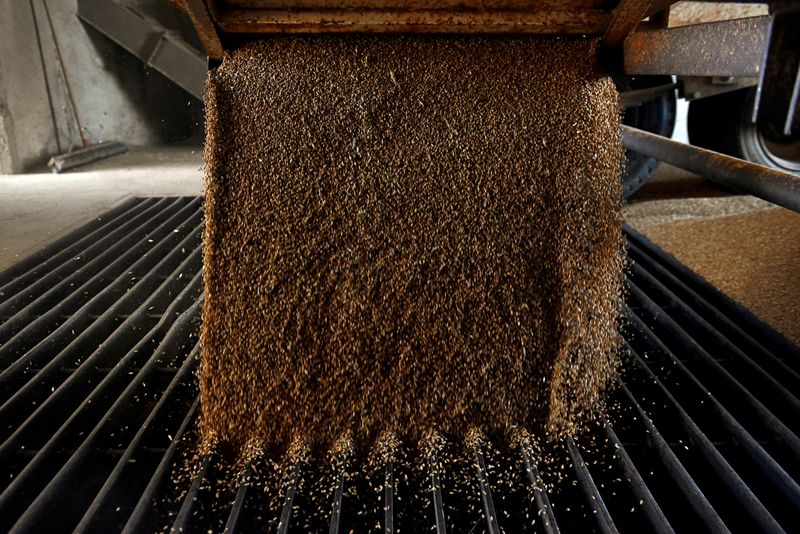BEIJING (Reuters) - China will not increase its annual low-tariff import quotas for corn, wheat and rice to accommodate stepped-up purchases of farm goods from the United States, local media group Caixin quoted senior agriculture official Han Jun as saying on Tuesday.
The report underlines China's desire to protect its farmers at a time when it is under pressure to buy billions of dollars more of U.S. agricultural goods to calm a prolonged trade war, although its grain imports have been well below quota levels in recent years.
Traders and analysts said the announcement appeared to be aimed at local concerns as Beijing gears up to buy more U.S. agricultural goods.
"This is soothing market nerves here," said Meng Jinhui, a corn analyst with Shengda Futures. "I think the market is worried about a blow from the possible increase of grain imports, and that (message) has gone to the high leadership."
U.S. President Donald Trump said in December that China will likely double its $24 billion (18 billion pounds) in pre-trade war purchases of U.S. agricultural products as part of a Phase 1 trade deal to be signed this month.
Han, a vice agriculture minister and part of the negotiating team, said last month China would buy more U.S. wheat, rice and corn, leading to speculation that Beijing could increase annual quotas on the amount of wheat, corn and rice that can be imported at a tariff rate of 1%.
Han was quoted by Caixin on Tuesday as saying the quota is offered to global markets and "we won't adjust it for one country."
In 2017, before the trade war started, purchases of the three grains from the United States amounted to only around $534 million, leaving room for a significant rise in imports within the existing quotas.
"Although there's certainly types of high-quality wheat that China would look to import, maxing out the tariff rate quota would also weigh on domestic producers," said Darin Friedrichs, senior Asia analyst at INTL FCStone, in a note late on Monday.
"China will be facing a tough balancing act of trying to satisfy the U.S. demands for large agriculture purchases, while also not hurting the rural population."
Increasing sales of meat, ethanol, distillers grains and soybeans are likely to be more important for reaching the U.S. target for doubling farm exports to China, said Shengda's Meng.
U.S. Trade Representative Robert Lighthizer said in December Beijing had committed to buy an additional $32 billion of American agricultural products over two years, or roughly $16 billion a year more than the 2017 baseline of $24 billion.
Soybeans, which are not covered by the grain quotas, made up more than half of China's agricultural purchases from the United States before the trade war.
China's annual quotas are 9.64 million tonnes for wheat, 7.2 million tonnes for corn and 5.32 million tonnes for rice.
The quota system has been heavily criticised by the United States, which last year won a World Trade Organisation ruling that China violated its obligation to administer the quota on a fair basis.

The agriculture ministry did not immediately respond to a request for comment.